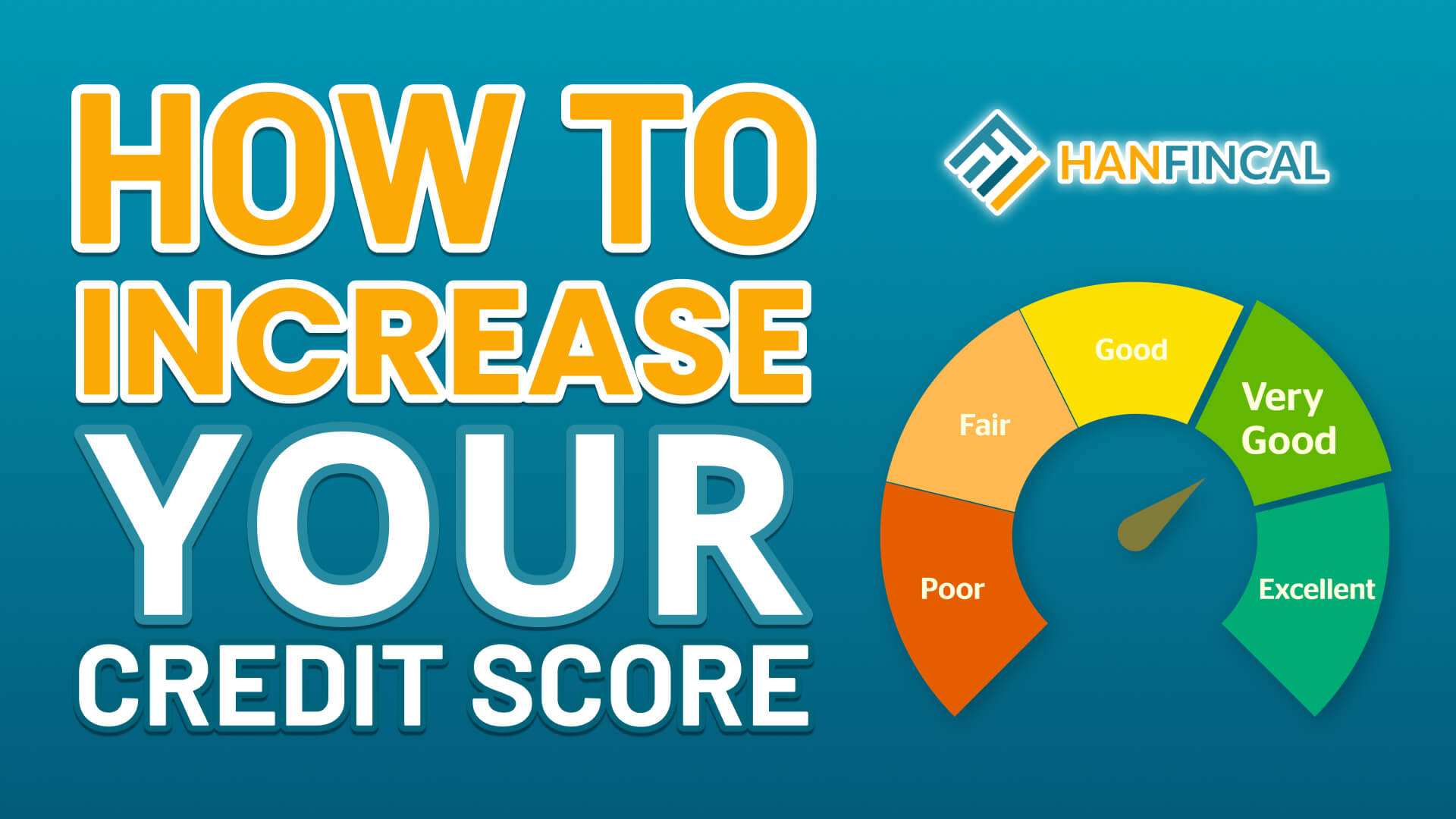Good credit scores will help you buy a new car or a new house easily combined with many attractive benefits. So, what are my current credit scores? Don’t worry; many people have the same thought as you. Moreover, according to the Federal Reserve Bank of Atlanta database, in May 2021, 191 million Americans had credit cards. In other words, 79% of consumers had at least one credit card or charge card, and one person had at least 2.7 credit cards. However, most of them do not profoundly understand all the functions and benefits they can get from their good credit scores. It’s time to find out and take a chance to increase your scores online FREE before it’s too late. Hanfincal is here and gives you the guide.
1. What is a good credit score?
An excellent credit score is your passport to competitive interest rates for mortgages, credit card offers, cars, job offers, insurance premiums, and more. A strong score is worthy because it saves you in excess costs.

The average FICO score range
A credit score definition is a three-digit number representing your credit risk and the likelihood of paying your bills on time, typically between 300 and 850.
- Your credit scores below 640 are generally subprime borrowers. Lending institutions will charge interest on subprime mortgages at a higher rate than a conventional mortgage because of carrying more risk. They also require a shorter repayment term or a co-signer for borrowers with a low credit score.
- On the other hand, a credit score of 700 or above is generally reasonable. A borrower may receive a lower interest rate, which their paying is less money in interest over the life of the loan.
Credit scores may vary the scoring model used and which credit bureau furnishes the credit report used for the data. Here is the average FICO score range:
| Credit Score Ranges | Category |
| 300-579 | Poor |
| 580-669 | Fair |
| 670-739 | Good |
| 740-799 | Very Good |
| 800-850 | Excellent |
2. Why did my credit score drop?
Getting a high credit score is the most significant advantage in your future financial actions. You can get attractive benefits from your good credit performance. However, your credit scores may drop off for many reasons as below:
2.1. Missed or late your payments
The majority rate of people who have credit cards meets this reason. Although you receive your email notification from the bank every month, for some reason, you delete it, and you forget to pay on time. Or, this is the first time you use your credit card, and failing to spend it on the right day is also understandable.
However, if you keep making this mistake, it can hurt your credit score. Moreover, your payment history accounts for 35% of your score, so be careful and ensure all your payments are on time.
The due date of your payment is more than 30 days late; credit issuers will report the delinquency to one of the three major credit bureaus (Equifax, Experian, and TransUnion), resulting in a drop in your score. In the worst case, you are late 60 or 90 days past due; it will significantly influence your score.
Struggling with credit cards? Immediate relief awaits! Answer a few questions to qualify for personalized assistance.
2.2. Applied for a lot of credit, mortgage, or loan
You applied for new credit in several places within a short time, say six months, which can create a significant dent in your credit score. Lenders will request your credit report whenever you apply for a new line of credit to determine your creditworthiness. They decide whether to lend to you based on factors such as your credit usage, payment history, and the types of accounts you currently have. However, applying for too much credit in a short period can hurt your credit scores and the likelihood that lenders will approve you for new credit.
2.3. Your credit utilization is higher than usual
You applied for new credit in several places within a short time, say six months, which can create a significant dent in your credit score. Lenders will request your credit report whenever you apply for a new line of credit to determine your creditworthiness.
They decide whether to lend to you based on factors such as your credit usage, payment history, and the types of accounts you currently have. However, applying for too much credit in a short period can hurt your credit scores and the likelihood that lenders will approve you for new credit.
2.4. Your credit report has an unusual point
It could be incorrect personal information, a transposed number, or payment history; all of these things can cause your scores to drop. Checking your credit reports usually is one of the best ways to ensure that no incorrect information appears in your file. If you see something wrong, you should dispute it with all three credit bureaus as soon as possible.

Credit Reporting
3. How to get your free good credit scores online?
If you want to buy your first home or a new car, you should work hard to improve your credit score. Make every effort to make your payments on time and keep your credit utilization below 70%. Furthermore, we have a unique method to obtain your free good credit score online. Are you curious? Let’s go to My Free Credit Score. After you enter your email address, name, and zip code, you will receive the following incredible benefits totally FREE:
- Instantly Access Your 3 Credit Scores
- Secure Online Delivery
- Daily 3 Bureau Credit Monitoring
- Roadside Assistance
One more important thing, your massive benefits is to sign up and receive a free 7-day trial of Credit Monitoring Service and receive a FREE CREDIT SCORE from TransUnion. This offer is contingent on a valid credit card authorization.
4. Related questions
4.1. What is the highest credit score?
The excellent credit score is 850. That is the highest FICO and VantageScore available for the most popular versions of both credit scoring models.
4.2. What credit score is needed to buy a house?
The credit score varies according to the type of loan. Here are some examples of typical housing loans:
- Conventional Loan: A minimum limit of a credit score is 620 or higher. In case your credit score is not reaching 620, you will be charged a higher interest rate.
- FHA: A minimum credit score is 580.
- VA Loan: If you are a veteran, qualified service member, or spouse, this is your best option. Rocket Mortgage requires a credit score of at least 580.
- USDA Loans: If you live in a qualified rural or suburban area and your income is less than 115 percent of the area’s average income, it’s time to think about a USDA loan. A credit score of 640 is required.
4.3. What does a credit score represent?
A credit score is a number ranging from 300 to 850. It represents a user’s creditworthiness. The better the score, the more appealing a borrower appears to potential lenders.
Have you received your scores to reach good credit scores from HanFincal guide yet? It’s time to recheck your credit activities and transaction history. If you come across one of the reasons your credit score is dropping, try to fix it so that you can raise your score. That has a far-reaching impact on your creditworthiness.
==> Read More:
- How To Build Credit Without A Credit Card?
- How To Build Credit?
- How To Get A Loan With Bad Credit?
- How To Increase Credit Score Quickly?
- Can You Pay Off Student Loans With Credit Cards?
- 9+ Ways To Consolidate Credit Card Debt
- Credit Card Cash Advance: Definition & How It Works?
- Does Overdraft Affect Credit Score?
- What To Do With Old Debit Cards?
- What’s The Easiest Credit Card To Get?
- Do Balance Transfers Hurt Your Credit Score?
- Can You Pay Off Credit Card With Another Credit Card?




